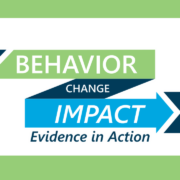Engaging Religious Leaders to Prevent Malaria in Nigeria
Malaria continues to pose a significant public health challenge in Nigeria, with many individuals failing to seek timely care and treatment. Only 52% of pregnant women had four or more antenatal care (ANC) visits, and only 32% of children under five with fever were brought to a health facility. Social norms, a lack of awareness, and low rates of perceived risk contribute to these rates. For example, only 60% of women of reproductive age feel that malaria is serious, and very few (10%) are aware that medicines provided at ANC can prevent malaria. Similarly, only one-half (52%) of caregivers think taking a sick child to a health facility is commonly practiced in their community.[1]
Nigeria is religious: almost all (99%) of its population are Christians or Muslims. Recognizing the influential role of religious leaders in Nigerian society, Breakthrough ACTION-Nigeria sought to harness their respected status to address public health. Working with the country’s main religious bodies and state governments, Breakthrough ACTION-Nigeria identified 482 religious leaders from seven Nigerian states (Akwa Ibom, Benue, Cross River, Nasarawa, Oyo, Plateau, and Zamfara).
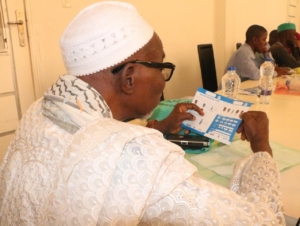
A religious leader holding a copy of Breakthrough ACTION Nigeria referral slip during a capacity building session. Photo by: Breakthrough ACTION Nigeria
These religious leaders received comprehensive engagement on malaria and other diseases of public health importance, such as tuberculosis, COVID-19, Lassa fever, and monkeypox. The leaders committed to integrating messages on the above topics in their sermons and outreach activities. They also agreed to refer pregnant women and people with fever to health facilities. Breakthrough ACTION- Nigeria set up WhatsApp groups for continuous, seamless collaboration with and among religious leaders, facilitating swift responses to emerging issues and exchanges of best practices.
Between October 2022 and September 2023, religious leaders reached 203,885 people with messages promoting priority malaria behaviors. They also referred 6,432 people with fever for malaria services and 303 pregnant women to antenatal care clinics. Most clients complied with religious leader referrals, averaging 89% seeking the recommended service every quarter. Breakthrough ACTION-Nigeria staff, who monitored religious leader activities, noted that religious leaders’ uses of the words “God” or “Allah” and scripture verses enhanced the receptiveness of congregants. They also observed personal interactions between religious leaders and congregants were instrumental in shaping health behaviors. Through counseling, religious leaders provided tailored guidance on how to live healthy lives.
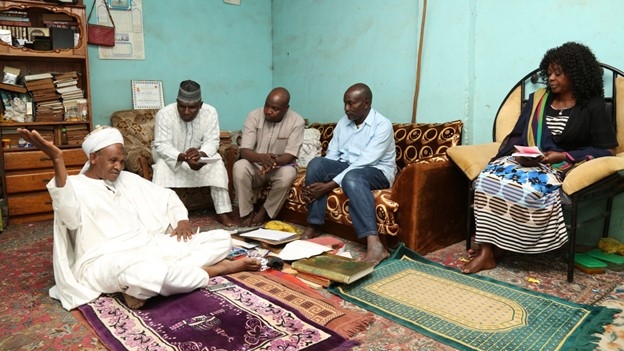
A religious leader having a health conversation with a member of the Federal Ministry of Health. Photo by: Breakthrough ACTION Nigeria
The results underscore the immense potential of engaging religious leaders in public health interventions. Maintaining the collaboration between public health organizations and religious institutions and helping religious leaders refine, update, and refresh their messaging to maintain congregations’ engagement will sustain and expand this work. By leveraging their influence, we can effectively promote malaria behaviors, improve service utilization, and combat malaria and other prevalent diseases in Nigeria.
REFERENCES
[1] Nigeria National Malaria Elimination Programme, Nigeria National Population Commission, & the Demographic and Health Survey (DHS) Program. (2022, November). Nigeria malaria indicator survey 2021: Final report. DHS Program. https://dhsprogram.com/pubs/pdf/MIS41/MIS41.pdf
Written by: Edet Ekpo, Program Officer, Malaria, Breakthrough ACTION, and Olusola Adeoye, Senior Program Officer II, Malaria, Breakthrough ACTION

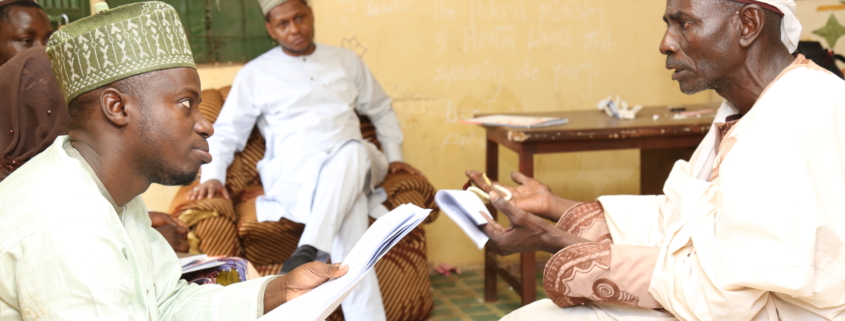
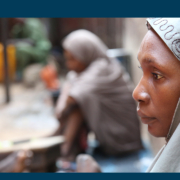
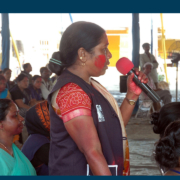 Gopal Bhattacharjee/Photoshare
Gopal Bhattacharjee/Photoshare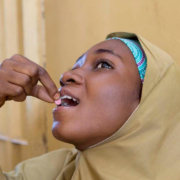 WHO
WHO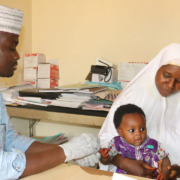 Breakthrough ACTION
Breakthrough ACTION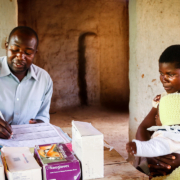 Photo credit: amy Rakotoniaina/PMI/Flickr
Photo credit: amy Rakotoniaina/PMI/Flickr